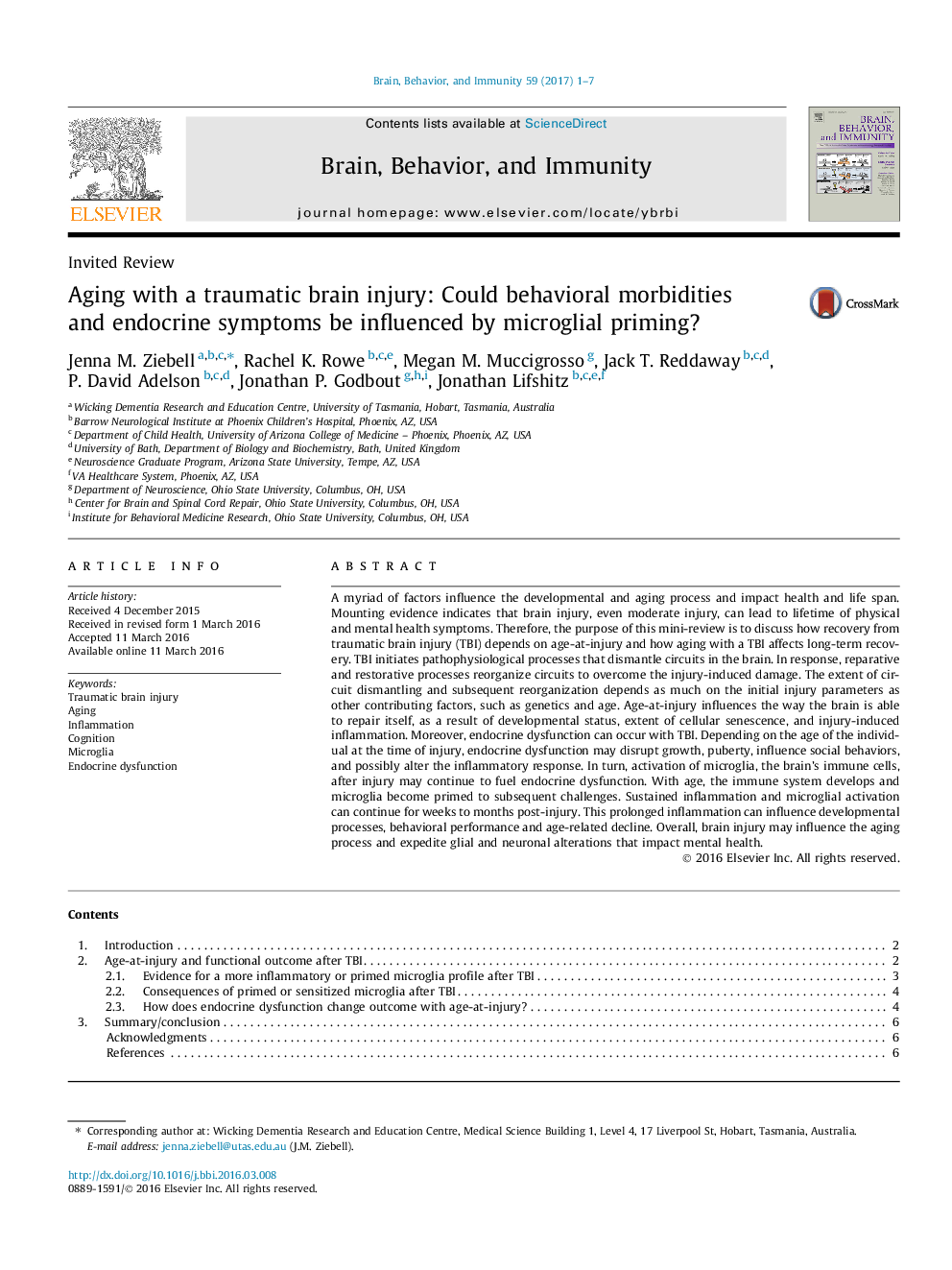| کد مقاله | کد نشریه | سال انتشار | مقاله انگلیسی | نسخه تمام متن |
|---|---|---|---|---|
| 5040921 | 1473908 | 2017 | 7 صفحه PDF | دانلود رایگان |
- Age-at-injury differentially affects cognition and learning.
- Endocrine dysfunction after TBI may impact the way an individual ages.
- Injury-induced inflammation changes with age, possibly reflecting microglial priming.
- Aging and injury are inflammatory priming events, such that either one can exacerbate the other.
A myriad of factors influence the developmental and aging process and impact health and life span. Mounting evidence indicates that brain injury, even moderate injury, can lead to lifetime of physical and mental health symptoms. Therefore, the purpose of this mini-review is to discuss how recovery from traumatic brain injury (TBI) depends on age-at-injury and how aging with a TBI affects long-term recovery. TBI initiates pathophysiological processes that dismantle circuits in the brain. In response, reparative and restorative processes reorganize circuits to overcome the injury-induced damage. The extent of circuit dismantling and subsequent reorganization depends as much on the initial injury parameters as other contributing factors, such as genetics and age. Age-at-injury influences the way the brain is able to repair itself, as a result of developmental status, extent of cellular senescence, and injury-induced inflammation. Moreover, endocrine dysfunction can occur with TBI. Depending on the age of the individual at the time of injury, endocrine dysfunction may disrupt growth, puberty, influence social behaviors, and possibly alter the inflammatory response. In turn, activation of microglia, the brain's immune cells, after injury may continue to fuel endocrine dysfunction. With age, the immune system develops and microglia become primed to subsequent challenges. Sustained inflammation and microglial activation can continue for weeks to months post-injury. This prolonged inflammation can influence developmental processes, behavioral performance and age-related decline. Overall, brain injury may influence the aging process and expedite glial and neuronal alterations that impact mental health.
Journal: Brain, Behavior, and Immunity - Volume 59, January 2017, Pages 1-7
